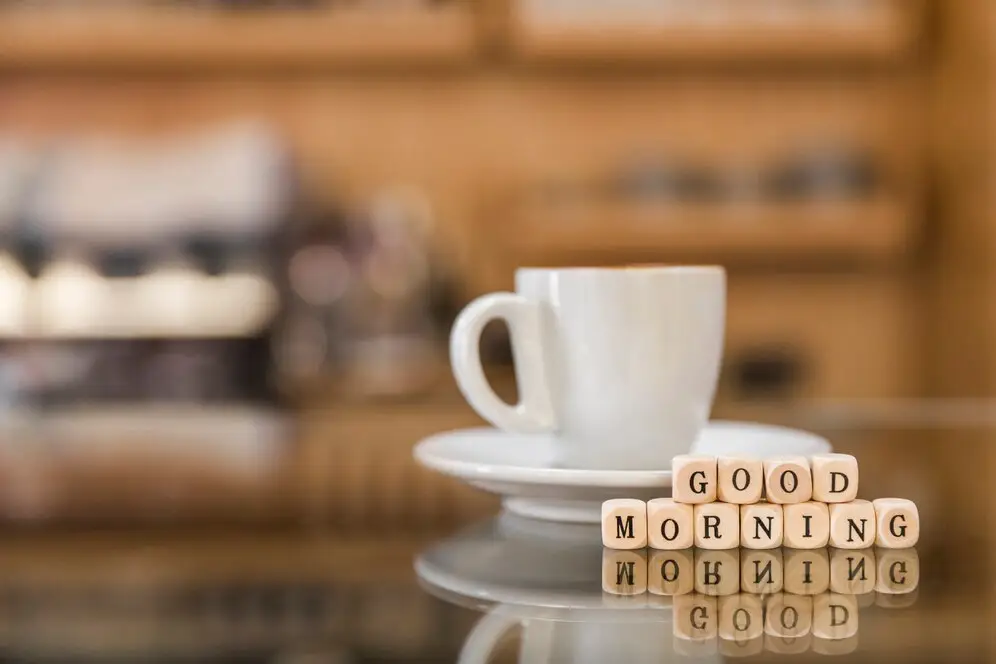Introduction to “Bom Dia”
“Bom Dia” is a commonly used Portuguese phrase that translates to “Good Morning” in English. Although its meaning is simple, the significance behind the greeting is more than just expressions. It’s a warm, inviting gesture that set the stage for positive and respectful exchange. If you’re visiting the country of Portugal or engaging with Portuguese people in your own group, knowing the significance of the phrase is vital.
What Does “Bom Dia” Mean?
In simple terms, “Bom Dia” means “Good Morning.” But it’s commonly used in a manner of politely meeting someone during the first period of the day. This isn’t just a casual expression; it’s an act of love that demonstrates your gratitude to the person whom you’re speaking to. The phrases “Bom” (good) and “Dia” (day) are frequently used to express positive vibes and a well-wish.
When to Use “Bom Dia”?
“Bom Dia” is typically utilized in the morning from the noon hour, when individuals tend to shift to greetings that are different, such as “Boa Tarde” (Good Afternoon) or “Boa Noite” (Good Night). It’s an accepted social timing, but in more relaxed situations it’s possible that the range of timing could be seen as. This is used in all kinds of social situations, including with friends or colleagues, with strangers, or even in a formal setting.
The Importance of Greeting in Portuguese Culture
In Portuguese tradition, the importance of greetings is creating connections and showing respect. “Bom Dia” is more than a simple gesture of respect and politeness. It reflects the significance of acknowledging the presence of people with genuine warmth and concern. It’s a hallmark of Portuguese hospitality and demonstrates the willingness to interact.
Using “Bom Dia” in Different Contexts
No matter if it’s in a casual or professional setting, “Bom Dia” is an extremely flexible greeting that can be used in any setting. Here are a few instances of how to use the greeting in a variety of settings:
- In the Workplace If you walk into your office or meeting room, “Bom Dia” is an excellent way to begin your day. It also creates an inviting atmosphere.
- In social settings When you meet someone early in the morning, be it in a cafe or at the home of a family member, it could be made more enjoyable by beginning with a jolly “Bom Dia.”
- Travelling in Portuguese-speaking Countries When you’re located in Brazil, Portugal, or other countries in which Portuguese can be spoken, welcoming locals by saying “Bom Dia” helps break the ice and show gratitude for the local culture.
Variations of “Bom Dia” in Portuguese-speaking Regions
Based on the location, “Bom Dia” might be pronounced differently depending on the region or use. As an example, in Brazil it is possible to hear “Bom Dia” in a less casual, rapid, and informal tone; however, in Portugal the pronunciation could be more formal and more measured.
How to Respond to “Bom Dia”?
If someone says to you “Bom Dia,” an easy response is to repeat “Bom Dia” back. There is also the option of adding more in the greeting based upon the context. For instance, “Bom Dia! Como está?” (Good morning! What are you doing? to display interest in the individual you are interested in.
Why “Bom Dia” is More Than Just a Greeting
The basis of “Bom Dia” lies in its capacity to provide a warm and welcoming environment. It’s a way to begin your day in a positive way. With this, you’re contributing to the attitude of respect and politeness that promotes good relations, regardless of whether they’re professional or personal.
Conclusion
To conclude, “Bom Dia” is more than a simple greeting. It embodies the values of generosity and respect that are prevalent in the Portuguese-speaking culture. No matter if you’re in an official or informal setting, using the simple word can help in establishing a positive impression and getting your day off to a good start.
FAQs about “Bom Dia”
Q: Can “Bom Dia” be used throughout the day?
A: No, it is typically used in the morning until noon. For the afternoon, you should say “Boa Tarde.”
Q: Is it important to greet others in Portugal with “Bom Dia”?
A: Yes, greetings are very important in Portuguese culture and reflect respect and good manners.
Q: Can I use “Bom Dia” in a professional setting?
A: Absolutely! It’s a polite and appropriate greeting for both casual and formal environments.
Q: How do you respond to “Bom Dia”?
A: The simple response is to say “Bom Dia” back, but you can also ask “Como está?” (How are you?).
Also Read: Wave_of_Happy_: Riding the Tide of Positive Psychology


